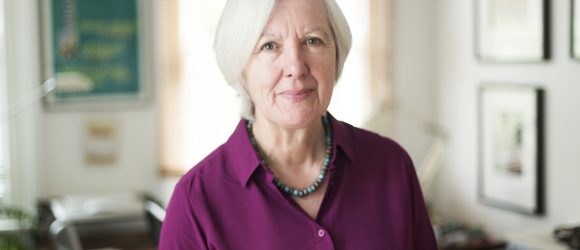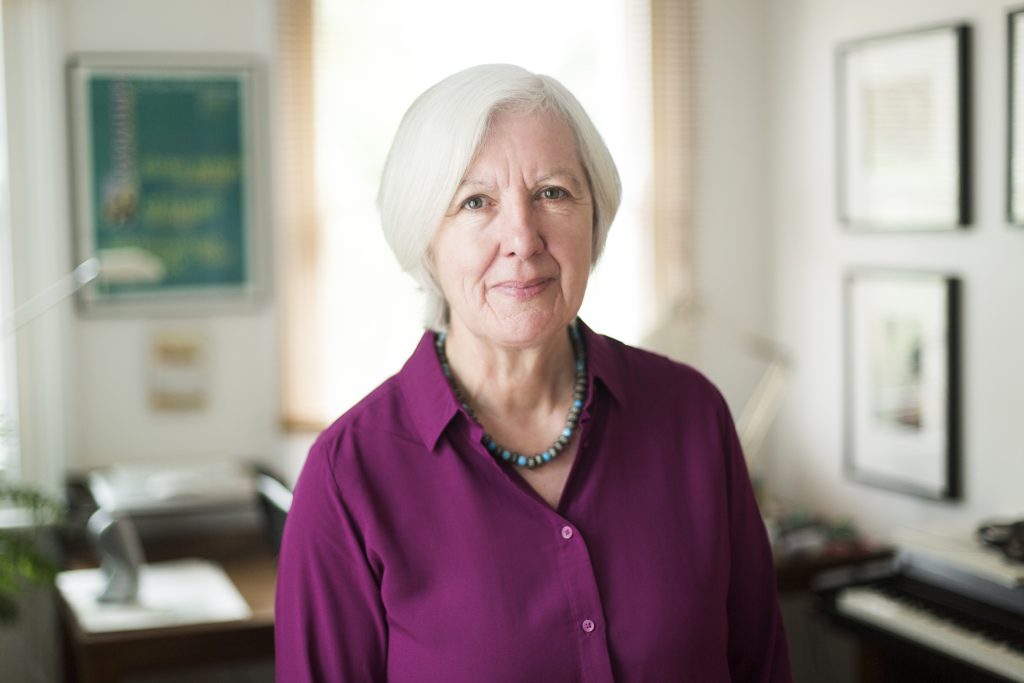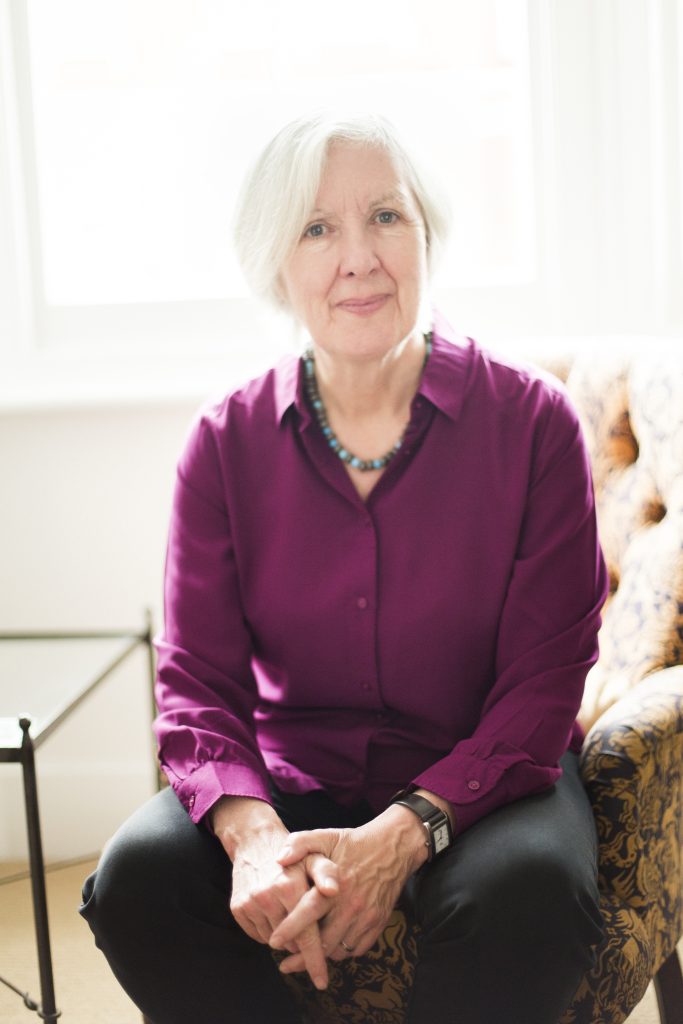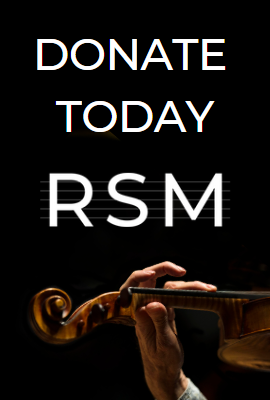RSM People: Judith Weir CBE

Master of the King’s Music and RSM President are just two aspects of the hugely varied career of composer Judith Weir. With the Coronation of HM King Charles III and Queen Camilla now less than a week away, we find out what has kept Judith inspired throughout her career and her recollections of working in such a historic role.

Your career as a composer has covered all kinds of orchestral, chamber, opera and theatrical works, among others. Has this variety helped you to maintain your creativity over the years?
I don’t think of myself as a specialist in any particular field, and I’ve been a long time working professionally as a composer, so it has been an important feature for me to work in many different genres. As an example, I’ve written quite a lot of choral music over the last ten years, as Associate Composer with the BBC Singers and as Master of The Queen’s Music, so recently I’ve moved to writing more orchestral works. It does feel right to vary that diet if I get the chance, which has helped me to feel really interested about each new task. There is, by now, a feel of re-learning some of the techniques, where I think to myself “I remember that from a piece I did 20 years ago. Let’s see if I can do it a bit better this time”. We can all think of composers who wrote so much in one genre, say opera or chamber music, but for me, I pick up much more energy by moving from quite contrasting tasks. It is really wonderful to have such a wide range of colleagues as a result.
How do you approach composing for such historic occasions as the late-Queen’s Funeral and the King’s Coronation? Does the knowledge of the huge historical significance and potential audience help or hinder your creative process?
These big projects are just the two of the latest over the last nine years in the role, but I also wrote for the Platinum Jubilee, the Queen’s 90th birthday and other state occasions, and in a sense, they are actually quite small projects for the composer. They are never long pieces; I’m usually asked for just four minutes’ music, or less, so it’s something that is quite imaginable as I start to plan the pieces. In the case of the Queen’s Funeral and now the Coronation, the requests were at fairly short notice, so I thought I must just get on with writing the music, and in a way, there’s a simplicity in that. You can’t sit around thinking ‘I could do this, or instead maybe that’. While I don’t subscribe to the idea that you must work right up to a deadline as it gives you more energy and vigour, nevertheless, the deadline does give a certain clarity to your ideas. You know what the event is going to be like; yes, it is huge in terms of its reach, but in terms of the piece, in a sense, it’s quite contained.
The setting of the Psalm 42, Like as the hart, written for the Queen’s Funeral, I thought was just like what you would do in an Anglican service. There’s always a Psalm, and the Queen was a devoted Anglican, so I felt I knew straight away how the text should be set. Because of that, it became quite a straightforward task. I didn’t spend time thinking about the whole tradition and history of royal music. As composers in this country, we grow up knowing about these big state events, there’s a certain character to them. Of course, I try not to do the obvious thing, but nevertheless, I think you have to make a nod towards that tradition.
One thing I’ve learned doing these big events is that you don’t get a second chance, the piece that you write has to speak immediately, you can’t leave your audience thinking “Eh?! What was that? What just happened?”. You can’t second guess an event like that, there is a certain vibe that has to be respected, I think. So, I hope the music is original, and I hope it has something of my voice in it, but it’s also got to sound like it’s been written for the occasion. That’s certainly the case for all the new music written for the Coronation.

2024 will bring an end to your tenure as Master of the King’s Music, how will you look back on your experiences of the role?
It’s been a very varied set of things to do. I will remember the wonderful state occasions, it has been a privilege to play a small part in them. Something that has been equally important to me has been my travels all over the country, working with all sorts of groups. I just spent this morning trying to arrange a visit to Barnsley, and a week or two ago, I was in Blackpool teaching. I’ve loved the opportunity to visit parts of the country I haven’t worked in before and to have a real reason for going there. If I think of the whole nine or ten years as a blur, those visits are what comes to mind. Places that I wouldn’t have seen properly otherwise.
It was a special experience to work for The Queen in her last years. There was all sorts going on in our country, but always a calm atmosphere around her in the Palace. Anytime I had an audience with her, it was a considered, but pleasant occasion. I liked very much the people I worked with in Buckingham Palace; and what a significant figure, and Monarch, the late Queen was. From a personal perspective, all I can say is what an unusual thing to do, particularly in a later stage of my career. It’s wonderful that the position still exists!
Your time in post has run in tandem with your time as President of The Royal Society of Musicians. How important do you think it is for our community to be properly cared for?
I’ve learned a lot about RSM’s wide range of activity during my time as President, but I still feel that your focus is, quite rightly, on the physical and mental care of musicians. My goodness, how much we need that! Even just ten years ago, there was not so much understanding about musicians’ health and more of an attitude of “don’t complain, just get on with it” if you had a muscular strain or other recurring problems. But it’s obvious to us now, making music is such a physical activity! In the same way that sports medicine has come on in leaps and bounds, it’s been so interesting to see that happen in the musical profession as well.
The strain of earning a living in music has also seen much greater attention paid to the psychological health of musicians. Even though I’m not in the middle of the ensemble any more, the shock of the announcement regarding the BBC Singers had a huge effect on me. I can only imagine what it must have been like for the people living through it.
What plans do you have when you step down? Will we see you return to stage work?
Well, by that point I will have reached the age of 70 and RSM’s influence on me has taught me the importance of treasuring my, so far, good health and not over-stretching myself. So, I’m hoping to continue to compose for pleasure, but also to make the most of the years that I have ahead. My working pattern has so far shown me that taking on change and new activities is always a positive thing, so I hope that I can carry on doing that.




